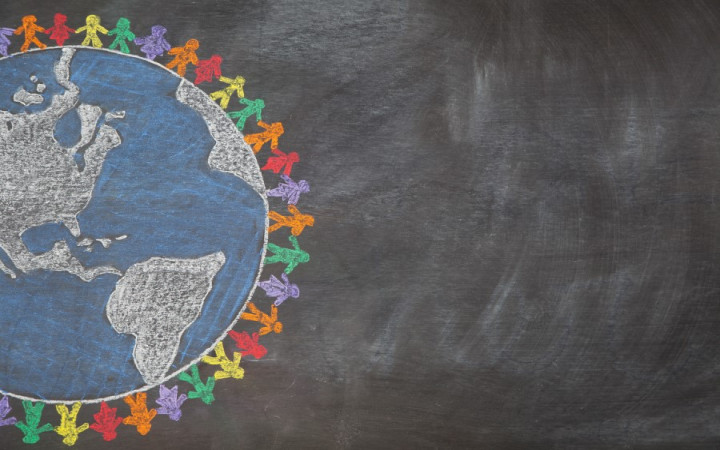Isn't the world a WONDERful place? You can spin a globe and stop it at a random place with your finger and discover a whole new world filled with people from different cultures that live lives completely different from yours.
How different can other cultures be? Very different! They can eat different foods and live in different types of houses. They probably speak different languages and have beliefs and customs very different from yours.
But guess what? They can also be similar in ways you might not expect. If you look past the differences, you might be surprised to learn about the ways in which you're just the same. Did you know you can use these similarities as a way to connect and communicate with people from all sorts of different cultures?
We sometimes call these means of communication universal languages. They're not formal languages, of course, but they're ways of sharing thoughts and ideas in ways that transcend mere words.
Some legends hold that, thousands of years ago, there was a single language spoken by everyone on Earth. Of course, historical evidence does not support this claim, but it is fun to think about a time when everyone may have been able to communicate in the same language.
Today, there are thousands of languages spoken around the world, and it's never too late to learn a new language. Yet, there are some means of communication that go beyond words and allow people of wildly different backgrounds to communicate and share emotions and feelings.
For example, some people believe music is a universal language. There may be some scientific support for this idea, too. Experts have learned that, across cultures, people can recognize three common emotions in music: happiness, sadness and fear.
Music may even be able to cross the divide not only between peoples of different cultures, but also between peoples and other creatures. Music has been known to be a calming influence on all sorts of animals, for example.
So what other types of universal languages might there be? Some people believe dance is a universal language. Along with music, dancing seems to be a common interest shared by peoples all over the world. Do you think you could see a dance from another culture and make some reasonable guesses about the ideas and emotions behind it? We bet you could!
Another universal language that you might not have thought of is mathematics! If you think about it now, though, it just makes sense. The value of pi is roughly 3.14159 no matter where you are on Earth. Likewise, figuring out the value of something involves the same mathematical calculations, regardless of whether you're counting in dollars, pesos or coconuts!




